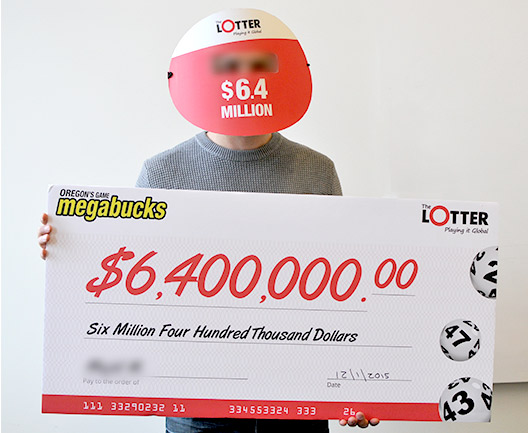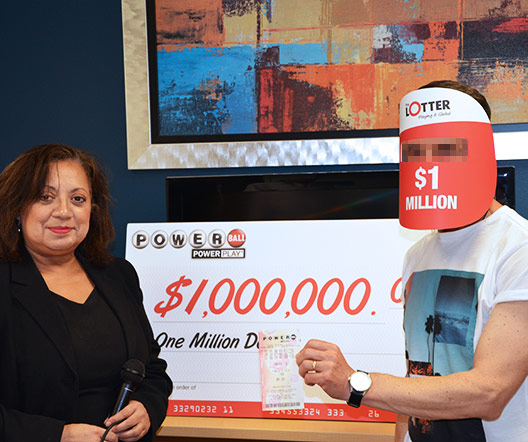How to Remain Anonymous After Winning the Lottery
Imagine winning a huge lottery jackpot! Overnight you will achieve a celebrity status that might not be in your best interest. That is, unless you don't actually have to go public after winning the lottery. The important question is: can you remain anonymous if you win the lottery so keep on reading to find all the answers below.
There are some lotteries which allow their jackpot winners to claim their prize anonymously while others require jackpot winners to go public in accordance with the laws of the country or state where the tickets were purchased. South Carolina, for example, allows its lottery winners to retain their privacy. The winner of the $1.537 billion jackpot in October 2018 purchased her ticket in South Carolina and as a result, she was able to collect her prize anonymously on 4 March 2019.
Why do lottery winners have to go public?

Many lotteries require that basic information about winners be released to the public, including name, city, and the amount won for all prizes, not only the jackpots. Why is this so? The lotteries are striving for transparency in their operations. They want the public to know that ordinary people can, and do, win lottery prizes, even incredible jackpot prizes worth hundreds of millions of dollars. Publishing the names of prize winners increases the public's trust in the fairness of lottery draws. It's also important to note that state lotteries are paid through public funds, and their profits benefit public programs. Many argue that for this reason, it's the public's right to know who won.
Stories of ordinary people winning jackpot prizes are hugely beneficial to lotteries. The publicity helps generate interest in the lottery and boosts ticket sales.
Another reason less talked about is of concerns of lottery insiders, employees or those working with lottery operators, rigging the system. An example of this was the 2017 Hot Lotto scandal when an information security director for the Multi-State Lottery Association was convicted of rigging the lottery's random number generator in several states, earning him millions in prize winnings. While cases like this are rare, it could have been prevented had the winner been anonymous.
Which lotteries let you win anonymously?
Many of the lotteries available on theLotter allow jackpot winners to claim their prize anonymously. Among them are EuroJackpot, EuroMillions, SuperEnalotto, and La Primitiva. If you're wondering which of the lotteries on our website will allow you to stay anonymous after you win the jackpot, take a look at the lotteries listed below to find out.
*For prizes over $1 million
Can you stay anonymous after winning the lottery?
In January 2016, at the time of the record $1.58 billion Powerball jackpot, a number of opinion polls asked the public what they would do if they won such a huge amount of money. Many responded by saying, "Keep it a secret." While the vast majority of European lotteries, as well as Australian and New Zealand lottos, allows players to keep their identity and personal information a secret from the general public, only a handful of states in America allow winners to keep their anonymity.
Which States Allow Lottery Winners to Remain Anonymous?
Arizona, Delaware, Georgia, Kansas, Maryland, Minnesota, Missouri, New Jersey, North Dakota, Ohio, South Carolina, Texas, and Virginia. In certain states, lottery winners are only allowed to remain anonymous after winning a certain prize amount. Some states including Colorado, Connecticut, Massachusetts, and Vermont, are willing to pay out winnings to a trust, from which players can withdraw their money. This lottery loophole allows players from these states to keep their identities safe. Other jurisdictions where Mega Millions and Powerball tickets are sold, such as Washington, D.C., the U.S. Virgin Islands, and Puerto Rico, require lottery winners to come forward publicly.
|
Do lottery winners have to go public?
"There are strategies and legal entities you can create that will help you remain more private if you win the lottery," says Robert Pagliarini, author of The Sudden Wealth Solution: 12 Principles to Transform Sudden Wealth into Lasting Wealth. One of them is called a "blind trust". In such a case, "blind" refers to the public which is unable to see the identity of the winner of a lottery prize. As these issues are quite complicated, it would be wise to consult a lawyer to see how to best protect your lottery jackpot win before you claim a huge jackpot prize.
For example, the winning ticket of a $487 million US Powerball jackpot in July 2016 was purchased in New Hampshire, where lottery winners are required to go public. The winner, who chose to remain anonymous, claimed the $487 million prize through the Robin Egg 2016 Nominee Trust facilitated by a local law firm.
"While we certainly wish we could have met our Powerball winners in person, we appreciate and respect that they have chosen to try to live as normal a life as possible," stated Charlie McIntyre, executive director of the New Hampshire Lottery Commission.
Court rules jackpot winner to remain anonymous
When another New Hampshire woman was the sole winner of a $560 million Powerball jackpot in January 2018, she quickly signed the back of her winning ticket. At the time she did not know that state law required her identity to be made public. If the jackpot winner had known, she would have signed the ticket with the name of a legal trust, thereby ensuring her anonymity.

The woman filed a lawsuit asking to retain her privacy. Her request stated: “She is a long-time resident of New Hampshire and is an engaged community member. She wishes to continue this work and the freedom to walk into a grocery store or attend public events without being known or targeted as the winner of a half-billion dollars.”
In March 2018, a New Hampshire judge ruled that the winner would be able to receive her prize money while keeping her name withheld from the public. The judge stated that if the winner's "identity be revealed, she will be subject to an alarming amount of harassment, solicitation and unwanted communications."
The winner, the judge ruled, "had met her burden of showing that her privacy interest in the nondisclosure of her name outweighs the public interest in the disclosure of her name."
Why would a jackpot winner give up their anonymity?
When Mavis Wanczyk won a $758.7 million Powerball jackpot in August 2017, she surprised everyone by staging a press conference just one day after the draw. “I just wanted to do this, I wanted to just get it over, done with and then everybody will just leave me alone,” the 53-year-old New Hampshire resident explained.
Many people thought Wanczyk made a serious mistake when she decided to go public.
In the days after the win, police boosted patrols around Wanczyk's residence and also warned the public of social media scams. If Wanczyk had claimed her jackpot prize anonymously through a legal entity such as a LLC (limited liability company) or a trust, she probably would have avoided any potential dangers to her privacy.
The benefits of going public after a lottery win

Lottery winners have said that it is nearly impossible to keep their lottery wins a secret.
"We would have preferred to stay anonymous, but we recognised it wasn't a possibility," said Christine Weir, who along with her husband won a £161 million EuroMillions jackpot in July 2011. "We wouldn't have been able to enjoy the experience if we had constructed lies to tell our nearest and dearest," she said, quoted in The Independent.
Another British lottery winner - Julie Jeffrey who won £1 million in 2002 - told Yahoo! News that she "went public for the same reason the majority of people do - there is nowhere to hide."
Winning the lottery anonymously at theLotter
At theLotter we ensure that buying lottery tickets online is safe and the privacy of our players is respected. When you win the lottery, your full name and/or image will not be used in our promotions and website unless permission has been granted. That said, our lottery winners are subject to the rules and regulations of the countries/states where their winning tickets were purchased. If a player wishes to remain anonymous for security reasons, they may be able to get an exemption from the lottery's disclosure requirements.
An interesting exception was made when our jackpot winner from Baghdad won $6.4 million playing Oregon Megabucks in August 2015. The Oregon Lottery allowed the Iraqi man to claim his prize anonymously due to safety and security concerns. In respect for his privacy, theLotter has blurred his image and referred to him only by his initials on our website, as has been the case with other big winners.

Can you win the lottery anonymously?
If you buy lottery tickets online and are lucky enough win the top prize playing for one of the biggest Powerball jackpots in history, you may interested in claiming your prize anonymously. Make sure to get professional legal advice as your advisors will help you safeguard your privacy. Good luck!